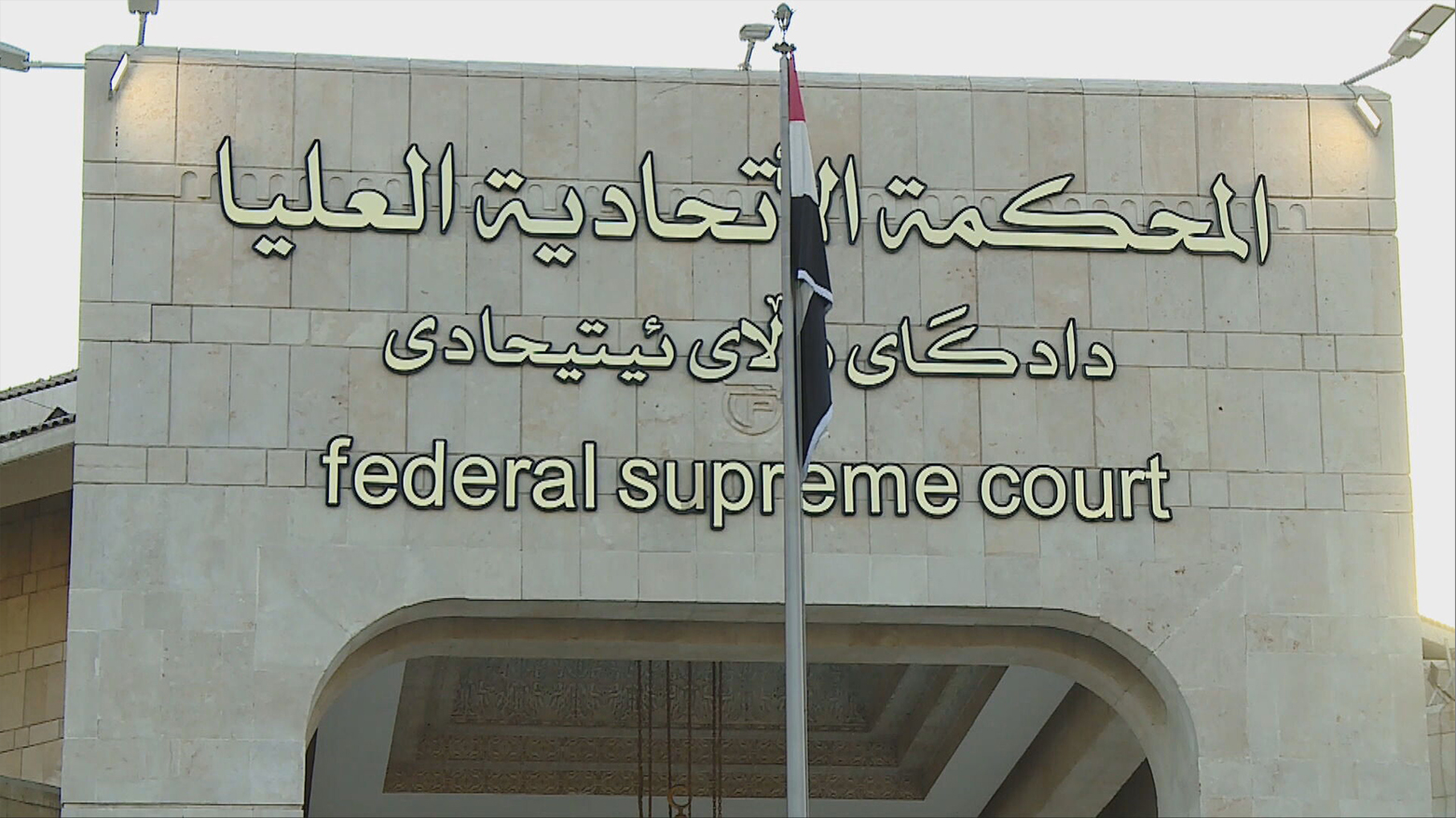Resignations Rock Federal Supreme Court, Collapse Looms
Iraq faces a looming legal crisis as nine Federal Court judges resign, sparking fears over judicial paralysis ahead of elections. Experts warn the court's dissolution could derail constitutional checks and electoral oversight amid rising political tensions.

By Kamaran Aziz
ERBIL (Kurdistan24) — A growing chorus of legal and political voices in Iraq are warning of a looming constitutional and judicial crisis following the mass resignation of several Federal Court judges. According to legal experts and analysts, the dissolution of the Federal Court could significantly destabilize Iraq's political and legal order, especially ahead of upcoming elections.
The controversy stems from unresolved legal questions surrounding the implementation of Article 93 of the Iraqi Constitution, which outlines the Federal Court’s jurisdiction over interpreting the constitution, settling disputes among governmental entities, and ratifying election results.
Speaking to Kurdistan24's correspondent Shvan Jabbari, constitutional expert Abbas al-Uqabi emphasized that the Federal Court plays an indispensable role in maintaining constitutional checks and balances. “If Parliament passes an unconstitutional law, who has the authority to challenge it? Undoubtedly, it is the Federal Court,” he stated.
“Therefore, the resignation of its members should not be accepted, as this would cause a major legal crisis. Another issue is that neither the Law of the Federal Court, nor domestic legal frameworks, nor the Constitution, have outlined the procedures for resignation. To whom should such a resignation be submitted? The Prime Minister or the President? All of these points remain unresolved.”
Al-Uqabi’s remarks underscore the uncertainty surrounding both the legal status of the court’s current members and the broader implications of their potential exit.
Mufid al-Saidi, head of the Iqra Center for Political Research, also voiced concern over the timing and consequences of the judicial resignations. “As we approach the elections, it is the judiciary that must validate the results, the candidates, and the largest bloc,” Saidi told Kurdistan24.
“Political disputes must be resolved through judicial constitutional interpretation so that Iraq’s political transition remains orderly. In all circumstances, the judiciary must be empowered equally with the legislative and executive branches to interpret the legal and constitutional texts.”
The crisis was triggered by the Federal Court's request—delivered by its president—to both the Speaker of Parliament and the President of the Republic, urging them to unify their positions on the contentious Abdullah Water Border Agreement. The request sparked intense criticism from several members of the court, who perceived it as an encroachment of political interests into judicial affairs.
In response, six principal judges and three alternate members of the Federal Court submitted their resignations in protest, citing concerns over judicial independence and political interference.
The resignations have alarmed constitutional scholars and political analysts alike, who warn that the absence of a functioning Federal Court could paralyze the nation’s ability to resolve intergovernmental disputes and manage electoral processes.
As of now, no official decision has been made on whether the resignations will be accepted or how the vacant positions might be filled. The impasse threatens to deepen Iraq’s already volatile political landscape as the country prepares for critical electoral milestones in the coming months.
Kurdistan24's correspondent Shvan Jabbari contributed to this report.
